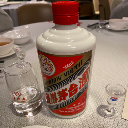 |
|
 |
|
 |
|
 |
|
 |
|
 |
|
 |
|
 |
|
 |
|
 |
|
 |
|
 |
|
 |
|
 |
|
 |
|
在1月23日的一篇文章中,Ki共享的鏈上數據,顯示沒收資產被混合併發送到加密交易所,例如Huobi

China might have already sold the 194,000 Bitcoin (BTC) seized from the infamous PlusToken scam in 2019, according to CryptoQuant CEO Ki Young Ju.
CryptoQuant首席執行官Ki Young Ju表示,中國可能已經出售了2019年臭名昭著的Plustoken騙局的194,000比特幣(BTC)。
In a January 23 post, Ki shared on-chain data showing the confiscated assets were mixed and sent to crypto exchanges, such as Huobi, instead of being kept in the national treasury.
在1月23日的一篇文章中,Ki共享了鏈上數據,顯示沒收的資產被混合在一起,並將其發送給了加密貨幣交易所,例如Huobi,而不是被保留在國家財政部。
For those who don’t remember (or didn’t know), the PlusToken scheme was one of the, if not the largest, crypto Ponzi scams in history, defrauding investors out of roughly US$2B (AU$3.18B) worth of cryptocurrencies between 2018 and 2019.
對於那些不記得(或不知道)的人,Plustoken計劃是歷史上的加密貨幣騙局之一,即使不是最大的加密ponzi騙局,使投資者大約$ 2B(AU $ 3.18B)的加密貨幣中的投資者之一。在2018年至2019年之間。
The scheme was kickstarted by Chen Bo, who presented PlusToken as a South Korean crypto wallet and exchange platform, targeting investors in China and other Southeast Asian countries.
該計劃是由陳博(Chen Bo)啟動的,陳博(Chen Bo)將普魯斯特(Plustoken)作為韓國加密錢包和交換平台,針對中國和其他東南亞國家的投資者。
Chinese authorities managed to arrest over 109 individuals and seized a substantial amount of Bitcoin reserves. While the Chinese Communist Party (CCP) stated the assets were “transferred to the national treasury,” it did not specify if they were sold.
中國當局設法逮捕了109多人,並奪取了大量比特幣儲備。儘管中國共產黨(CCP)表示資產“轉移到國家財政部”,但並未指定它們是否被出售。
However, Ju’s analysis of the on-chain footprint suggests otherwise, indicating that the confiscated BTC was sold on crypto exchanges in tranches throughout 2021.
但是,JU對鏈上足蹟的分析表明,這表明被沒收的BTC在整個2021年的分支機構中出售。
The large volumes of Bitcoin being moved from the PlusToken cold wallet address to crypto exchanges were flagged by on-chain analysts and traders throughout last year. Many speculated that the assets were being sold by the Chinese government to bolster its coffers or influence the BTC price.
去年整個鏈分析師和商人都標記了大量的比特幣從普魯斯科肯冷藏地址轉移到加密交易所。許多人推測,這些資產是由中國政府出售的,以加強其庫存或影響BTC價格。
However, the CCP maintained that the confiscated BTC was placed in the national treasury and not sold. Several officials also stated that crypto is not recognized as legal tender in China and that any gains from crypto trading are subject to individual income tax.
但是,CCP堅持認為,被沒收的BTC被置於國家財政部,而不出售。幾位官員還說,加密貨幣在中國不被認為是法定貨幣,而加密貨幣交易的任何收益都繳納個人所得稅。
Ki’s analysis now seems to contradict the CCP's claims, suggesting that the on-chain data provides a more accurate account of the assets' fate. He urged his followers to “trust on-chain data, not the CCP.”
Ki現在的分析似乎與CCP的主張相矛盾,這表明鏈上數據提供了對資產命運的更準確說明。他敦促追隨者“相信鍊鍊數據,而不是CCP”。
免責聲明:info@kdj.com
The information provided is not trading advice. kdj.com does not assume any responsibility for any investments made based on the information provided in this article. Cryptocurrencies are highly volatile and it is highly recommended that you invest with caution after thorough research!
If you believe that the content used on this website infringes your copyright, please contact us immediately (info@kdj.com) and we will delete it promptly.
-

-

-

-

-

- 區塊鏈投資的新時代:QTUM交易所交易基金(ETF)
- 2025-01-24 16:30:44
- 在一個越來越模糊的區塊鍊和金融之間的邊界的世界中,一項重大創新正在上升:QTUM交換基金(ETF)。
-

-

-

-































































